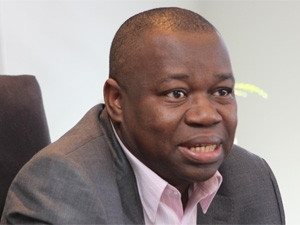
The South African National Roads Agency (Sanral) says it will carry on implementing government policy around e-tolling Gauteng's highways until it is told otherwise in the wake of much opposition to the system during its current review.
Currently, a 15-member review panel - appointed by Gauteng premier David Makhura to probe the socio-economic impact of the e-tolling system - is listening to input from stakeholders. The panel should present its findings at the end of November.
So far, labour unions, civil society groups and business organisations have rejected e-tolling in its current form, with some calling for e-tolling to be scrapped entirely, to others, who advocate a switchover to the national fuel levy as a means of funding.
Consulting Engineers South Africa has so far been the only interested party to come out in support of e-tolling and to argue against the fuel levy option. The body represents more than 500 consulting engineering firms, some of which were contracted by the Gauteng Freeway Improvement Project.
In a statement issued today, Sanral notes its participation in the review process would be "inappropriate as the matter had been decided in relevant structures", with Cabinet approving electronic tolling of Gauteng's freeways in 2007.
It adds that transport minister Dipou Peters said during her 15 July budget speech that government has not undertaken a review of either policy or the legislation governing urban tolling or any other tolling. "Sanral is very clear about where it reports. Until the agency is advised otherwise by national government, it will carry on implementing what is government policy."
The roads agency, which today raised R450 million in a bond auction, adds there is no secrecy around the project, as "all documents regarding the whole process around the Gauteng Freeway Improvement Project are publicly available should the Gauteng provincial panel reviewing the e-tolls wish to peruse them".
Sanral notes these documents answer questions as to how the project was conceived; the role played by the Gauteng provincial government, why it was decided to go the e-toll route, the advantages of the upgrading of these highways and the pro-active steps to favour the poorer communities. "They have been in the public domain for years."
"The fact that we have exempted public transport - including taxis that are registered - from all toll fees, demonstrates our concerns about the rising cost of living among the poor, who predominantly use public transport," spokesman says Vusi Mona.
However, Justice Project South Africa (JPSA) chairman Howard Dembovsky has said the system would create the "socio-economic disaster of the millennium and we will see people hanging themselves from these beautiful gantries", as e-tolling will cripple the economy of Gauteng and South Africa, as a whole.
Sanral maintains the system was only introduced after "comprehensive studies by respected economists pointed to the cumulative negative impact of traffic congestion on economic activity. A clear case was made to improve the quality of the highway network in the province and to address the high impact of congestion, wasted fuel, travel times and productivity".
Yet, according to the Opposition for Urban Tolling Alliance, e-tolling has been rejected because an estimated 39% of motorists are compliing after eight months after operation. "Extrapolate that over 1.5 million of the 2.5 million freeway users were not fitted with e-tags, signalling that the rejection of the system by the public was holding strong".
Share